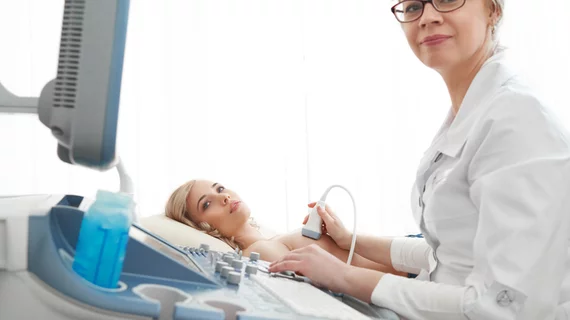Find It Early Act takes flight on Capitol Hill
Women with dense breasts or other heightened risk factors for breast cancer may be on the cusp of receiving 100% coverage for additional imaging beyond standard mammography.
The push comes from bipartisan legislation introduced for initial consideration in the U.S. House Dec. 13 by Reps. Rosa DeLauro (D-CT) and Brian Fitzpatrick (R-PA).
Called the Find It Early Act, the law would require all healthcare payers to pony up for breast ultrasound, breast MRI or other follow-up tests deemed clinically necessary for due diligence against hard-to-find breast cancers.
The introduction took place at a live-streamed press conference featuring broadcaster Katie Couric and DenseBreast-Info.org executive director JoAnn Pushkin.
“I’m here in part because my own cancer was missed an estimated five years in a row,” Pushkin said from the podium. “I had a mammogram every one of those five years. And every one of those five years, my doctor told me my mammogram was normal. But in fact a tumor was growing, hidden in dense tissue.”
“We must strengthen breast cancer awareness, specifically for women with dense breasts like me,” said Couric, who received her diagnosis this past spring. “Breast cancer is treatable, and 99% of women who are diagnosed early survive. The Find It Early Act is a critical step toward bettering access to … life-saving screenings.”
In a news release posted by DeLauro’s office, event organizers state that, when follow-up and additional screenings are needed “because of breast density, family history or for any other reason, depending on their health insurance, the majority of women are forced to pay out of pocket for these additional screenings, which can cost more than $1,000.”
More:
As a result, many who cannot afford this cost will choose to delay or forego these additional tests, and that decision to delay screening can lead to later stage diagnosis. The Find It Early Act would ensure all health insurance plans cover screening and diagnostic mammograms and breast ultrasounds and MRIs with no cost-sharing.”

